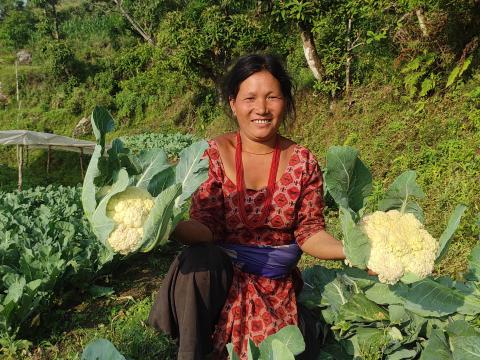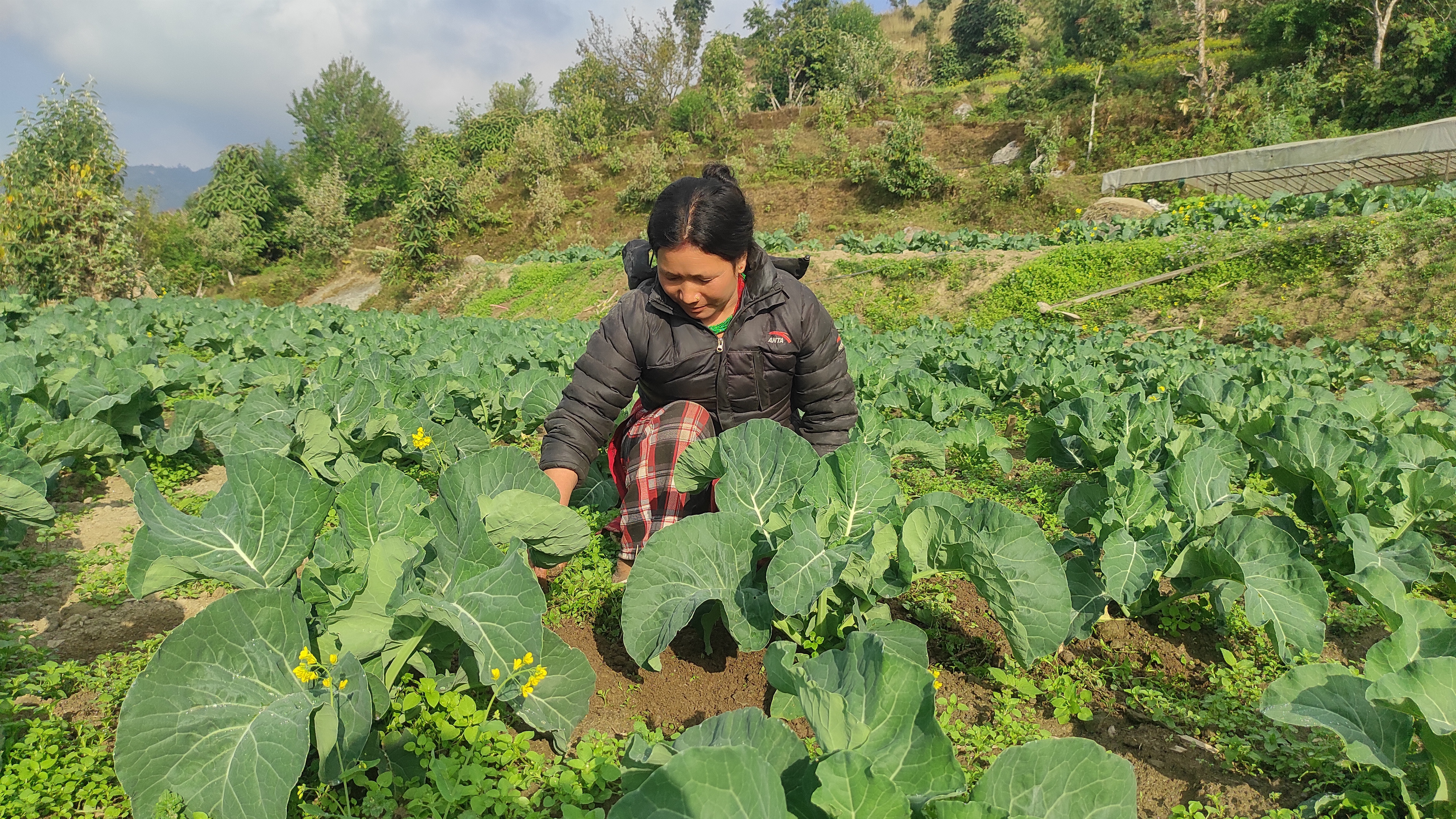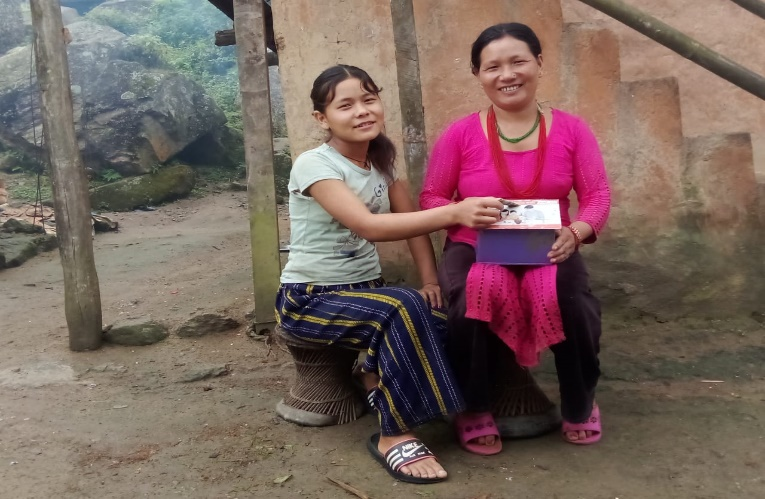Sowing the Seeds of Prosperity

35-year-old Chalimaya knew no bounds when it came to her resilience and quest for prosperity. This pursuit which she bestowed for an improved livelihood transformed herself from a struggling farmer to a successful entrepreneur, signaling a beacon of hope and inspiration for her community.
Nestled in the hills of Sindhuli district, Chalimaya lives with her husband and their four children. For years, she and her husband toiled tirelessly in the fields, applying traditional farming methods that yielded meager returns. On top, they regularly endured bleak chances of finding potential markets for their sales. They grew staple crops including paddy, millet, maize, wheat, and seasonal vegetables. Despite their relentless efforts, the production could never generate enough income to suffice their family's basic needs. The cycle of poverty in the family appeared unbreakable, casting a shadow of worry over their children's future.
As their children grew older, Chalimaya and her husband's concern deepened since they were in a state of grim uncertainty about fulfilling their children’s dream of achieving quality education.
“We were very much concerned about our children’s future, as we could not afford for their quality education from our income”, Chalimaya lamented.
To supplement their income, her husband took up seasonal labor work, but even that fell short in providing a stable livelihood for their family of six.

A glimmer of hope finally arrived at their doorstep when Chalimaya became part of the Makhamali Vegetable Producer group, an initiative under the Nutrition and Resilient Livelihood (NRL) Programme implemented by World Vision International Nepal in partnership with Sindhuli Integrated Development Society Nepal. Through this group, she received invaluable training regarding modern techniques to vegetable farming along with market-led production approach, breaking free from the constraints of traditional methods.
Armed with newfound knowledge and determination, Chalimaya did not only focus on seasonal vegetables production, but also ventured into off-seasonal vegetable farming using plastic tunnels. Cultivating a variety of vegetables including tomatoes, cabbage, cauliflower, eggplant, onions, cucumbers, potatoes, and chilies, the shift from cereal crops to high-value vegetables marked a pivotal turning point in her life.
Expressing the favourable outcome of her farming, Chalimaya shared, “Even in a small piece of land my family owned, I never imagined that I could be earning a decent profit and would be making more profit by selling vegetables even during off-season. This has infused us with a positive energy, to plan a better future for our children.”

Once worried about their hardwork not sowing positive results, Chalimaya has now been fully occupied in vegetable farming, illuminating a ray of happiness in her family. Her first harvest of 200 kilograms of cauliflower, sold at a lucrative rate of Rs. 80 per kilogram, brought in a profit of NRs 20,000. This allowed her to shed light on the potential of commercial vegetable production in the community. With each successful harvest, Chalimaya's income soared, bringing the much-needed stability to her family.
The impact of her transformation was profound as it was not only limited to making decent earnings. Chalimaya has now been able to feed her children with nutritious meals, catering to their healthy lifestyle and well-being. Moreover, she no longer has to embrace the unpredictability of quality education for her children as the positive impact has made her capable to send her children to school without any hassle. This significant endeavor has paved way for a promising future for her children and the family no longer has to think twice for providing their children with good food and good education. Their long-standing worries have now turned into hope, and the once distant dream of affording quality education has become a tangible reality.

Reflecting on their past and present life, Chalimaya’s daughter Niruta shared, “We did not have safe drinking water to drink, and we used to rely on food, managed by our mother. But now we focus on consuming fresh and organic vegetables that includes rice and lentils every day. We have been prioritising our health and have been attending school regularly.”
Chalimaya’s inspiration has also radiated on her daughter Niruta. Empowered by the opportunities, Niruta joined a child financial literacy class and started saving for her future studies, embodying the spirit of resilience and determination passed down by her mother. “After attending the child financial literacy class, I have started saving some amount of money which will be used for our higher education in near future”, Niruta implied about the benefits she earned from the literacy class.

The interventions of Nutrition and Resilient Livelihood programme impact has rippled across Sindhuli, empowering more families like Chalimaya's to break free from the shackles of poverty and embrace a future filled with possibilities.
In Sindhuli, a total of 85 Producer Groups have been formed, comprising of 1,846 group members. Among them, 1,395 are females who are the primary beneficiaries. Specifically, there are 26 vegetable producer groups, four pig producer groups, and 48 goat producer groups. These groups have gained increased access to quality inputs, technology skills, and knowledge, resulting in improved market-led production and ultimately an enhanced livelihood option in the district.